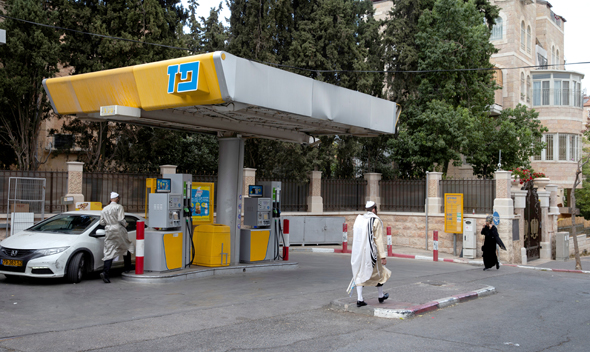Paz backs out of a deal to install charging stations after dispute
Israeli energy company intended to pay NIS 24 million to acquire 50% of EV-Edge, but cancelled deal after dispute over day-to-day management of the subsidiary company
21:3222.03.21
Israeli energy company Paz’s acquisition of 50% of EV-Edge has been canceled, Calcalist has learned. Around six months ago, Paz announced that it would acquire half of EV-Edge which is owned by the Union Automotive Group, the importer of Toyota and Lexus vehicles, that is owned by the wealthy Horesh family. Under the terms of the deal, the Paz Group intended to pay NIS 24 million ($7.3 million) for half of the company’s shares.
 Paz gas stations originally planned to install electric charging stations at their centers. Photo: Amit Shaabi
Paz gas stations originally planned to install electric charging stations at their centers. Photo: Amit Shaabi
As part of the deal, EV-Edge was supposed to install electrical charging stations at Paz gas stations, this in addition to providing charging solutions for private homes, and marketing them to customers of both companies.
 Paz gas stations originally planned to install electric charging stations at their centers. Photo: Amit Shaabi
Paz gas stations originally planned to install electric charging stations at their centers. Photo: Amit Shaabi Calcalist has learned that the deal will not come to fruition after both sides failed to reach an understanding in regard to who would retain shareholding control and management of the joint company. Originally, the sides agreed to divide shareholding control equally between them, however after getting into the details around expected daily management, difficulties arose and both parties decided to cancel the deal.
Either way, Paz plans on aggressively deploying electrical charging stations at its gas stations this year. Paz surprised the energy market when it announced a year ago that it would be investing in green energy, which aims to replace fossil fuels like gasoline, diesel, and oil that are derived from crude oil. Paz then decided to invest $10 million in GenCell for 4%-5% of the company’s shares.
GenCell was founded by Israeli entrepreneur Benny Landa, and began its operations nine years ago, a little before Landa - who is one of the most prominent entrepreneurs in Israel - sold his company, Indigo, for $800 million to American computer giant Hewlett-Packard. GenCell develops fuel cells that generate electricity for electric motors by using oxygen and hydrogen that are derived from ammonia.



